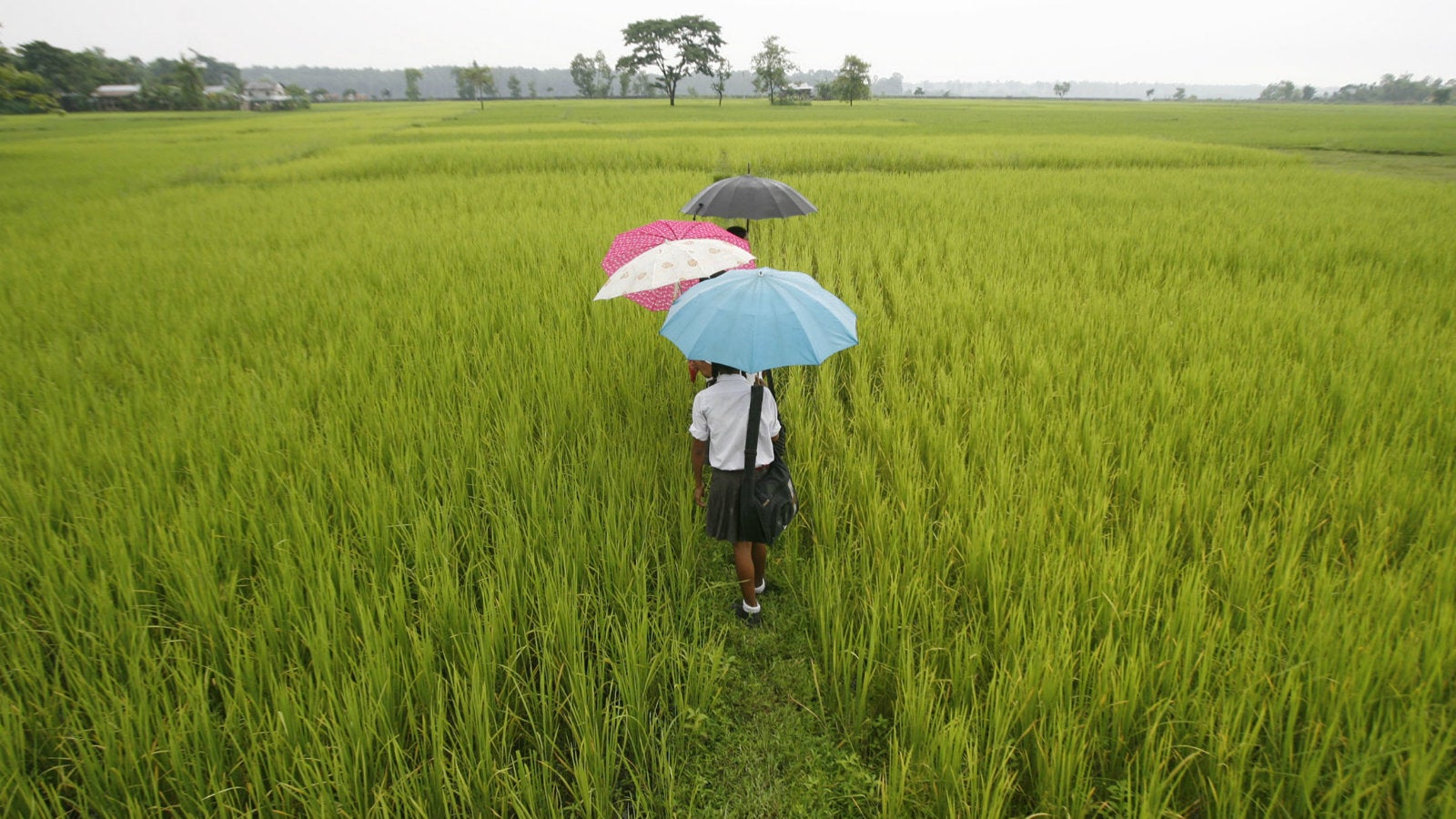Good monsoons are a boon for India’s farmers but a curse for their school-going children
The monsoon rains are a big deal in India. Everyone from the farmer to the stockbroker tracks the rain. The former because the sowing pattern depends on it, and the latter because agricultural growth boosts the country’s economy.


The monsoon rains are a big deal in India. Everyone from the farmer to the stockbroker tracks the rain. The former because the sowing pattern depends on it, and the latter because agricultural growth boosts the country’s economy.
But a good monsoon is often a bane for school-going children in rural India, a new study has found.
With plentiful rainfall, children turn into farm hands instead of attending school, the study shows. This, in turn, drags down test scores and learning outcomes, researchers Manisha Shah of the University of California Los Angeles (UCLA), and Bryce Millett Steinberg of Brown University have found.
Shah and Steinberg studied rainfall patterns in rural India between 2005 and 2009 and compared it with data from the Annual Status of Education Report (ASER) by the NGO Pratham. The ASER survey measures learning outcomes and schooling status in all rural districts in India and includes 600 households in each district.
The research shows that a good rainfall could increase farm wages by 2% but pull down math scores of rural schoolchildren by anywhere between 2% and 7%. Further, school attendance drops 2% that year and the probability that a child is enrolled in a school fell by 1%, the study says. “This (fall in attendance and enrollment) implies that a positive rainfall shock increases the urban-rural enrollment gap by 15% for 5-16-year olds. In addition, children who experienced a positive rainfall shock in the previous year are 4% more likely to have dropped out of school and 4.5% more likely to be behind in school,” the study added.
Such estimates are worrying at a time when learning outcomes are already cringe-worthy in Indian schools: A 2016 ASER study, for instance, found 13% of Indian students (aged 5-16 years) were unable to read anything; a World Bank study (pdf) found 43% of class eight students were unable to solve a math division problem.
“Education is extremely important for economic growth, so it is important to understand how families make decisions about investing in schooling for their children. We wanted to study how forces that determine adult wages can affect the market for children’s labour, and whether that might also affect their schooling and learning outcomes,” Shah, an associate professor at UCLA, told Quartz in an email.